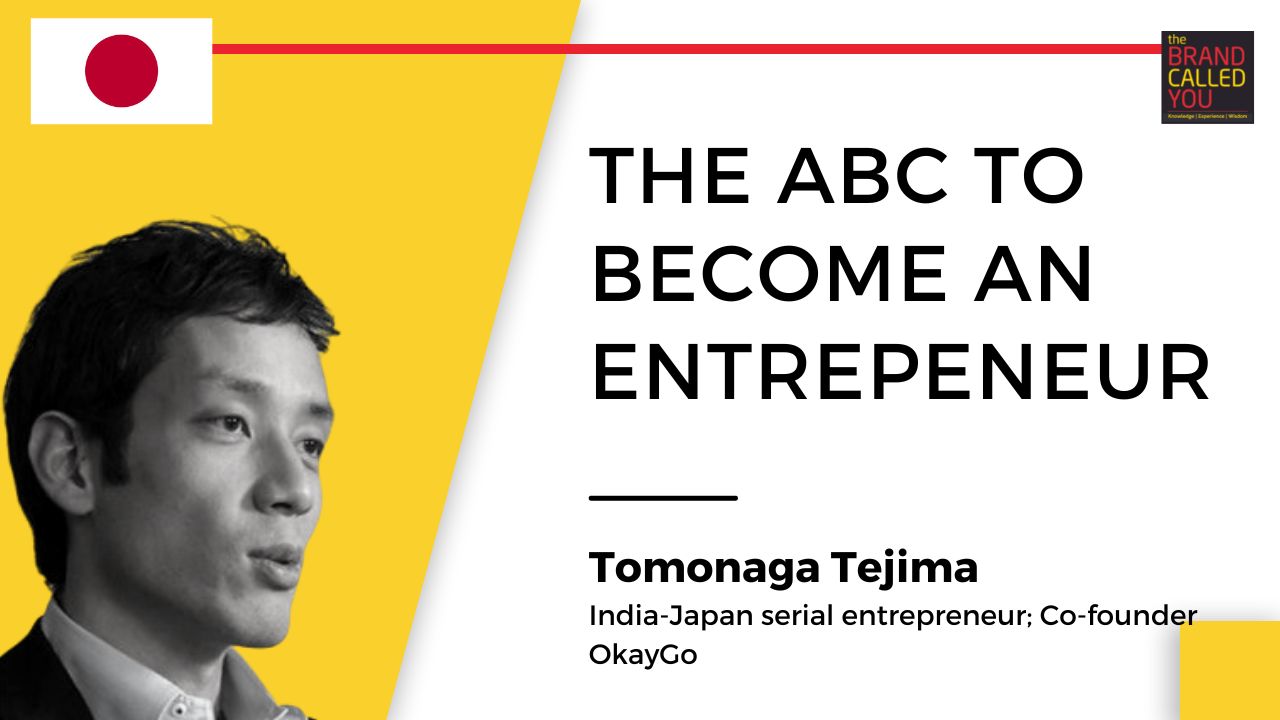Tomonaga Tejima, India-Japan serial entrepreneur; Co-founder OkayGo
- Tom is an India-Japan serial entrepreneur. He is the co-founder of OkayGo.
Podcast
Overview
India, as we all know, has a booming startup ecosystem with a lot of foreigners coming to benefit from it. In a strong competition with China, India has become a major business player for a lot of Japanese business people. Today, we have a Japanese entrepreneur who started his entrepreneurial journey in India. He talks about the several key points a budding entrepreneur must consider in his/her journey.
[00:35] – About Tomonaga Tejima
- Tom is an India-Japan serial entrepreneur. He is the co-founder of OkayGo.
- He was earlier with Otsuka Pharmaceuticals, the second-largest Japanese pharmaceutical company, where he served as Asia region, head of the pharmaceutical business.
[00:48] – Tell me about your journey from the time of “The Great Hanshin Earthquake” in 1995
- It was the first time I chose the internet-related career. It wasn’t very popular at the time, and I was one of the few people who was exposed to it.
- In the Hanshine Earthquake, about 6,000 people were killed. There was a text based system, where particular information was added, like a person evacuating to a particular school.
- An idea struck me that I can use this information for something internationally big and socially impactful.
[06:47] – What attracted you to India?
- While working at Otsuka Pharmaceuticals, I travelled to multiple countries, including India and Pakistan.
- I was always passionate about startups. On my visit to China in 2008, I realized there were multiple local Japanese entrepreneurs along with local Chinese entrepreneurs. I realized I was too late to join them. The situation was similar in other markets as well.
- On my visit to India, the startup market was still in infancy. I found it to be a great opportunity, though there were many challenges and difficulties.
[14:30] – Should an entrepreneur or a startup founder bootstrap as long as possible, or should they raise money whenever it is possible?
- People have different perspectives. As an entrepreneur, you have to have multiple scenarios. You cannot stick to only one scenario.
- It is important to always have a backup plan.
- I always believe conservative spending is better than overspending. Raising minimum amount is a better approach than more. A frugal approach is much better.
[18:16] – How do you manage the imbalance of most assets with no valuation vs no assets with massive valuation?
- In Japan, we have a lot of corporations with a huge amount of cash reserve but due to less innovation or due to the comfort of the current business, there is no strategic investment or decision-making to create the next generation business.
- If you have to create business energy or a business together with staff, the overall expectation whether to grow or not in five years, is a fundamental difference.
RESOURCES:
You can connect with Tomonaga Tejima- LinkedIn
Enjoy this podcast?
If you learned new insights about entrepreneurship, subscribe and share it with friends!
Love to give us 5 stars? ⭐⭐⭐⭐⭐ If you do, we’d love a review from you. Help us reach more people to keep them in the know as we talk to leaders, high achievers, and thought leaders from diverse backgrounds and nationalities. Excellence can come from anywhere; stay in the know, and hear from emergent high achievers and gurus.
Stay updated with what’s shaping the world today through the latest The Brand Called You Podcast episode. Follow us on iTunes, Spotify, and Anchor.fm.
Don’t forget to follow and message us on these platforms!
Website: https://tbcy.in/
Facebook: https://www.facebook.com/followtbcy
LinkedIn: https://www.linkedin.com/company/tbcy/
Twitter: https://twitter.com/followtbcy
YouTube: https://www.youtube.com/c/followtbcy
Thanks for listening!
Profile
- Tom is an India-Japan serial entrepreneur. He is the co-founder of OkayGo.
- He was earlier with Otsuka Pharmaceuticals, the second-largest Japanese pharmaceutical company, where he served as Asia region head of the pharmaceutical business.


